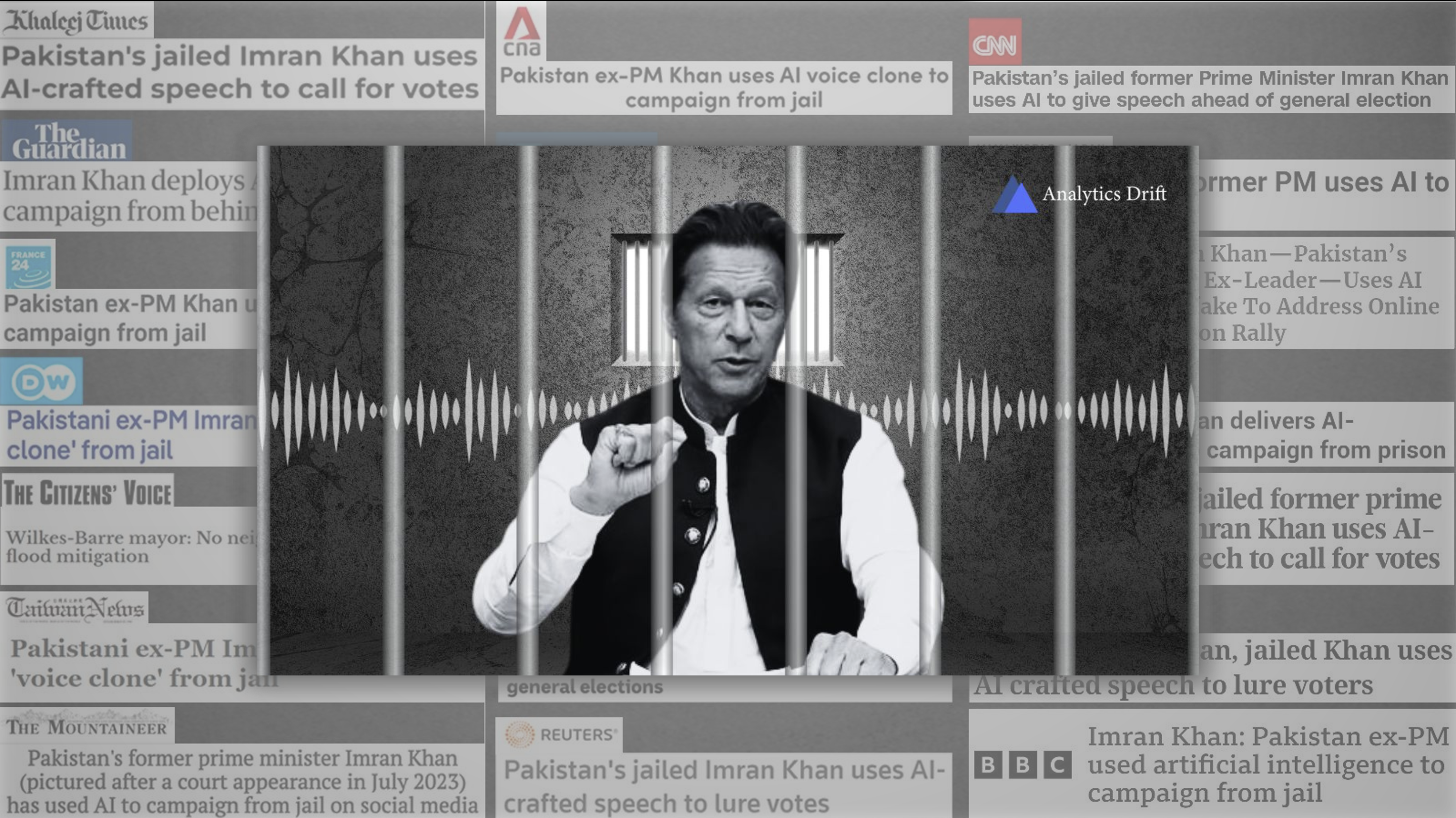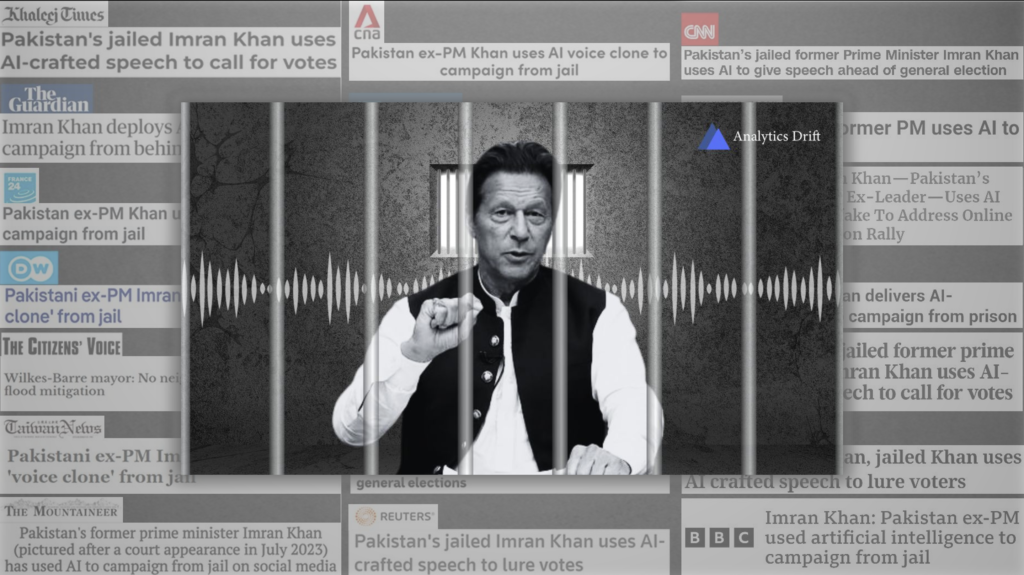Pakistan’s political landscape witnessed a groundbreaking event as former Prime Minister Imran Khan employed artificial intelligence to deliver a compelling speech to his supporters while incarcerated. This innovative move, leveraging AI to transcend physical constraints, has set a precedent in political campaigning.

Image Source: insaf.pk
Imran Khan’s voice, replicated by AI, resonated across social media platforms during a virtual event, captivating over a million viewers with a meticulously crafted four-minute address. Despite Khan’s limited public access due to imprisonment, this technological breakthrough allowed him to communicate his message effectively, potentially influencing the political dynamics leading up to the forthcoming elections.
The utilization of AI to project Khan’s voice highlights the technologically progressive stance of his political party, PTI. This move not only underscores Khan’s enduring popularity but also positions PTI as an innovative force, distinguishing it from traditional political entities.
Implications for Pakistan's Political Future
While PTI confirmed the AI-generated nature of the speech, questions loom regarding its adherence to legal norms. Khan’s confinement and legal battles cast uncertainty on his ability to participate directly in the imminent parliamentary polls. Despite his lawyer’s mention of the potential submission of nomination papers pending a court decision, the legality of AI-delivered political addresses remains a point of contention.
Analysts speculate on the impact of this AI-driven approach. While acknowledging its potential to galvanize PTI’s support base, concerns persist over potential legal violations barring any direct or indirect public addresses by an incarcerated individual.
Legal Implications and Political Ramifications
The overwhelming response to Khan’s AI-mediated speech signals a pivotal shift in political campaigning, leveraging technological advancements to circumvent physical constraints. However, the government’s silence on this issue raises questions about the official response to such novel campaigning methods.
As the nation prepares for elections, the intersection of technology and politics introduces both excitement and legal ambiguity. The sheer scale of social media viewership juxtaposed against the broader voter base underscores the evolving landscape where technological outreach might significantly impact political outcomes.
Imran Khan’s AI-powered address has not only captivated the public but also sparked debates on the permissible extent of political engagement for incarcerated individuals. Whether this technological leap becomes a catalyst for change or raises legal hurdles remains to be seen, yet it undeniably heralds a new era in Pakistan’s political narrative.

I am a law graduate from NLU Lucknow. I have a flair for creative writing and hence in my free time work as a freelance content writer.
